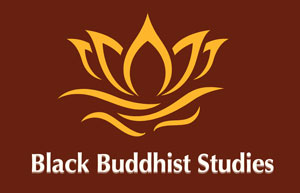A Statement in Support of Palestinians in Gaza and the West Bank
By Rima Vesely-Flad, Ph.D.
As a Buddhist practitioner who is committed to political, psychological, and spiritual liberation, I stand in solidarity with Palestinians who are subjected to violent displacement and genocide by the Israeli Occupation Forces.
May 15th is observed annually as Nakba Day, the commemoration of hundreds of thousands of Palestinians who were driven from their homes seventy-six years ago. On the land of their ancestral homes, colonial powers and Zionists established present-day Israel. Many of the Palestinian refugees who were driven out during the 1948 Nakba fled to present-day Gaza and refugee camps in the West Bank, both of which are now under siege in an unprecedented way.
In Gaza, which is again being routinely bombed while residents are forcibly displaced, Gaza City, Khan Younis, and Rafah are in ruins. The health care system in Gaza has been completely destroyed, as have universities, schools, libraries, businesses, and most residences. The numbers of Palestinians held within Israeli prisons, jails, and detention centers – and the atrocities enacted against them – is escalating. Palestinians in Gaza fear another Nakba.
At the same time, Palestinians in the West Bank are undergoing ethnic cleansing, the kinds of atrocities that mirror the tremendous violence that permeated Black life in the South in the nineteenth century after the Civil War. Israeli settlers are routinely driving out Palestinians in rural communities and cities, setting fire to their homes and fields, stealing livestock, and rendering generations of Palestinian families homeless. Enduring poverty is setting in. Meanwhile, the Israeli Occupation Forces stand by and refuse to hold the settlers accountable.
How does Buddhism speak to such atrocities? Buddhist Ethics calls us to act with wisdom, to look directly at our suffering and others’ suffering and to do everything we can to alleviate it. Buddhist wisdom refuses to avoid suffering, including state violence. Buddhist wisdom refuses to allow state violence to take place with impunity: suffering arises as a result of causes and conditions, and we are required by our Buddhist ethics to cultivate conditions that lead to liberation. Cultivating life-giving conditions requires the capacity to look directly at harm, at suffering that arises from violence. Looking directly at state-drive violence in Gaza and the West Bank, as well as within Israel, requires tremendous capacity.
We must speak out against state-driven Israeli violence that takes place with impunity. We must hold the Israeli government accountable. Our ethics requires the capacity to acknowledge and refuse to stay silent. Every morning I start my practice by acknowledging the great harm that is taking place and my own culpability and responsibility for it. I attempt to turn towards it all. And I am always aware that I am turning towards such great suffering from a great distance, from the safety of my home in North Carolina. I listen to the voices of Palestinians who post on Instagram, watch Al Jazeera nightly, and read the left-leaning Israeli newspaper Haaretz. I support the student protestors who are now being attacked and in some cases—such as the situations of Mahmoud Khalil and Badar Khan Suri—detained and threatened with deportation due to their advocacy for Palestinians. The U.S. government’s complicity in Israel’s war crimes, its support for Netanyahu’s right-wing agenda, and its threats toward U.S. universities is further perpetuated by its war on pro-Palestinian activists in the U.S. I applaud the students, faculty, and staff at universities who are refusing to be silent in the face of ethnic cleansing and genocide, especially as they face increasing repression and threats from the Trump administration. They refuse to be complicit. They are collectively embodying the fortitude that I have gained from my own Buddhist practice. They refuse to look away, deny, diminish, or gloss over the realities of Israeli-driven mass suffering in Gaza and the West Bank. Many of the student and faculty protestors are Jewish and are living out their Jewish values of “repairing the world” in their refusal to be silent.
Their sacrifices have spurred me to act. I support two Palestinian organizations:
Dahnoun Mutual Aid: Supports Palestinians in Gaza with water, food, transportation, shelter, warm clothes, diapers, milk, and cash assistance.
Roots of Resilience: Supports Palestinian farmers in the West Bank so they can continue to farm and keep their land under constant threat of settler violence and maintain food sovereignty despite blockades and sieges.
May you respond with compassion as you are able.
